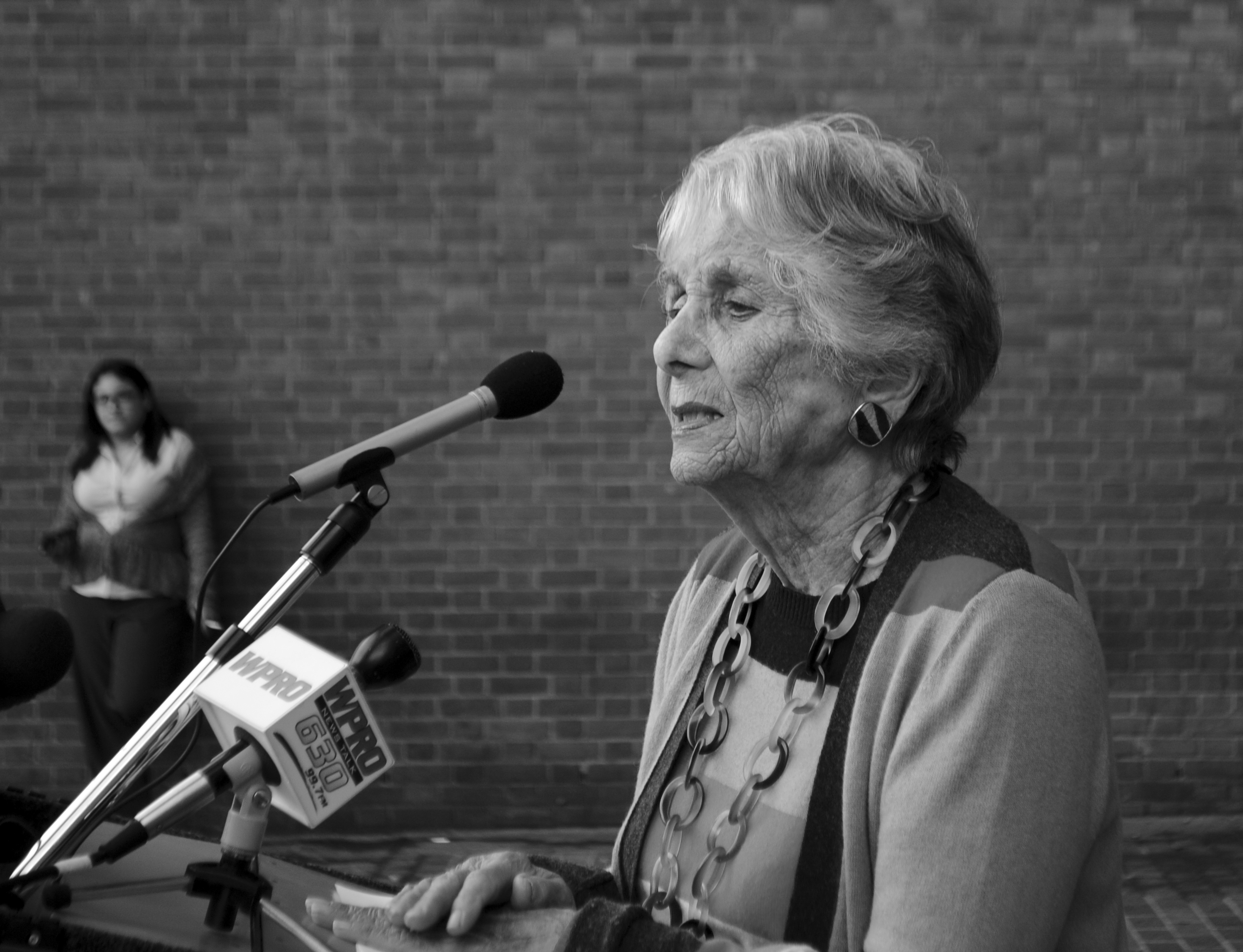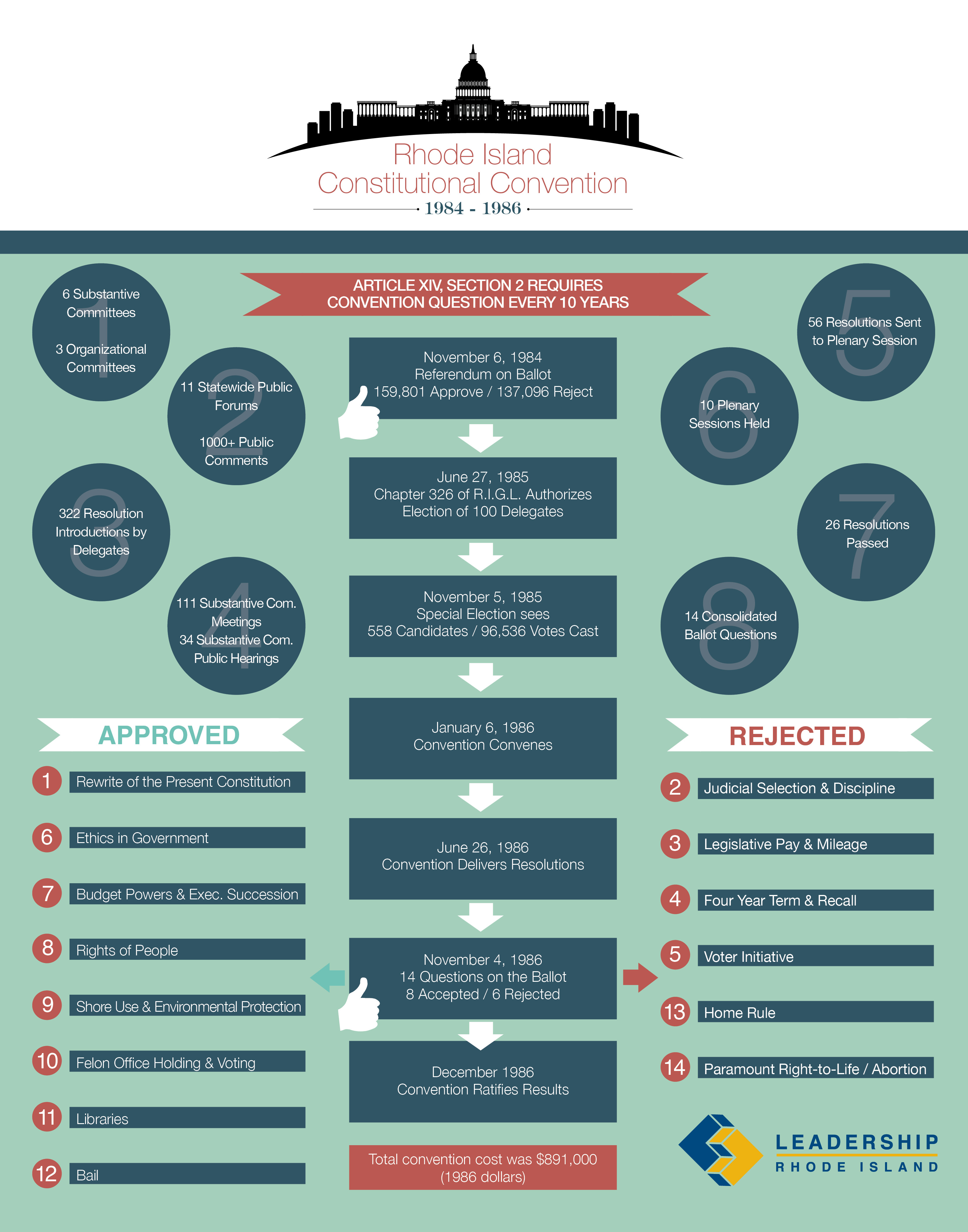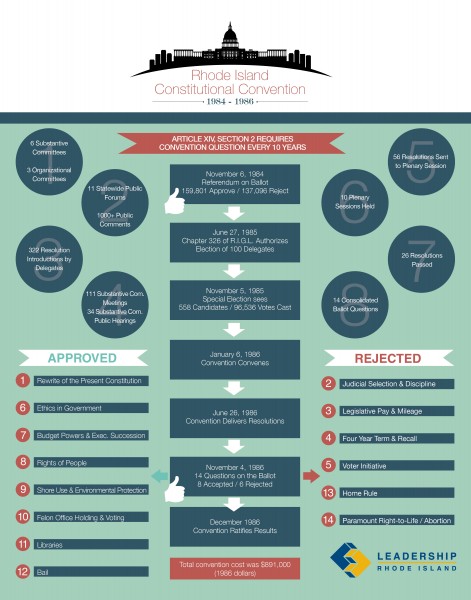Delegates from the 1986 Constitutional Convention recalled their experiences and urged against convening another convention in 2016 from the steps of Garrahy Judicial Complex where several ConCon meetings were held in the 1980s. The three speakers were united in their opinion that the ConCon is not the tool for tackling issues of governmental reform, and in fact does pose a threat to civil liberties. Further, a new ConCon will almost certainly be captured by special interests, in much the same way the last one was.
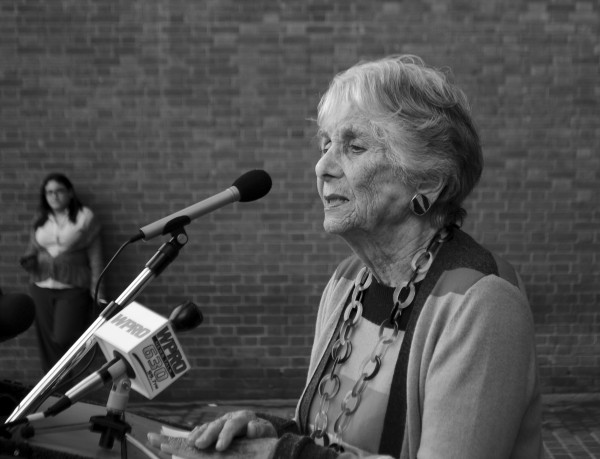 Lila Sapinsley, former delegate to the 1986 Constitutional Convention and former Senate Republican Minority Leader, said:
Lila Sapinsley, former delegate to the 1986 Constitutional Convention and former Senate Republican Minority Leader, said:
“In 1986 when a Constitutional Convention was approved I eagerly ran for delegate. I naively thought that if delegates ran without party labels the convention would be free of politics. However, my hopes were dashed when I saw that since candidates ran from House districts, the convention was a mirror image of the House of Representatives. Delegates, if not directly connected to party leaders, were family or friends. The Speaker of the House controlled the convention. If delegates to the 2015 convention are elected by existing electoral districts we will again have a duplicate of the legislature. Let’s concentrate on electing better representatives and forget about an expensive duplicate of the General Assembly.”
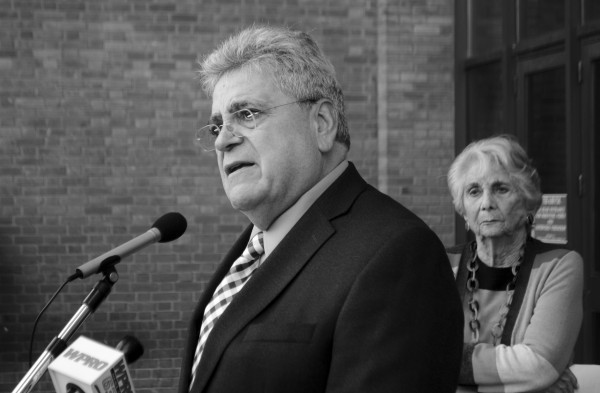 East Providence resident Roberto Gonzalez, also a former delegate, stated:
East Providence resident Roberto Gonzalez, also a former delegate, stated:
“The 1986 convention was hijacked from the citizens of Rhode Island. While some delegates deliberated in good faith, the outcome of the convention had been predetermined by the then-powerful House Speaker, who was in turn controlled by the same special interests that have controlled House leaders in recent history. Many, if not most of the delegates, were family or friends of those in power. It was never a convention of the people to improve government, but rather a convention of special interests. I am sure that if the good citizens of this state choose to have another convention, the exact thing will happen. Instead of debating good government amendments, the convention will become bogged down with a plethora of polarizing social issues such as gun control, abortion, voter ID, and immigration. There is nothing to stop the delegates from putting measures on the ballot that will reverse or dilute the civil rights gains that have been so difficult to obtain.”
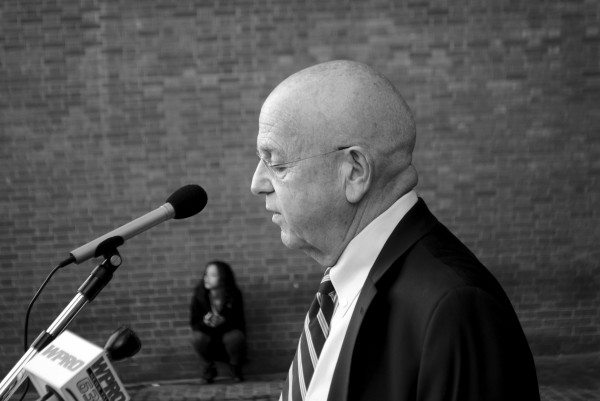 Tom Izzo, another former delegate, said:
Tom Izzo, another former delegate, said:
“The process of electing delegates alone impacts the potential for a ‘purer, freer and more open deliberation’ – a process where, while non-partisan, does not allow for a real vetting of the candidates’ qualifications. In most instances–though not running–sitting representatives hold inordinate sway, and special interests can leverage their greatest influence. These special elections, as in most primaries, have a very low voter turnout, and candidates must depend on these special interests to get elected. While there were a few positive outcomes from the last convention, I do not believe the time, the financial cost, the potential negative impact on civil rights, and most importantly the virtually unlimited impact of special interests, especially in light of recent rulings regarding campaign spending, warrants or justifies the calling of another convention.”
There is no reason to think that a Constitutional Convention held today will be any different from the 1986 experience, and a number of reasons to think that the results of a new convention will be worse. Since 1986, the influence of money on politics has exploded. The present Speaker of the House is no less powerful than his 1986 predecessor, and is potentially more powerful. No changes have been made to the selection process of delegates that might prevent a convention from being hijacked again.
Promises from proponents that this Constitutional Convention will be different are meaningless. They have no more control over the proceedings and outcomes of a ConCon than I do. Across the country, no state has held a ConCon since the one held in Rhode Island in 1986, for all the reasons the former delegates outlined above.
Why should Rhode Island be the only state not to learn from its mistake?

